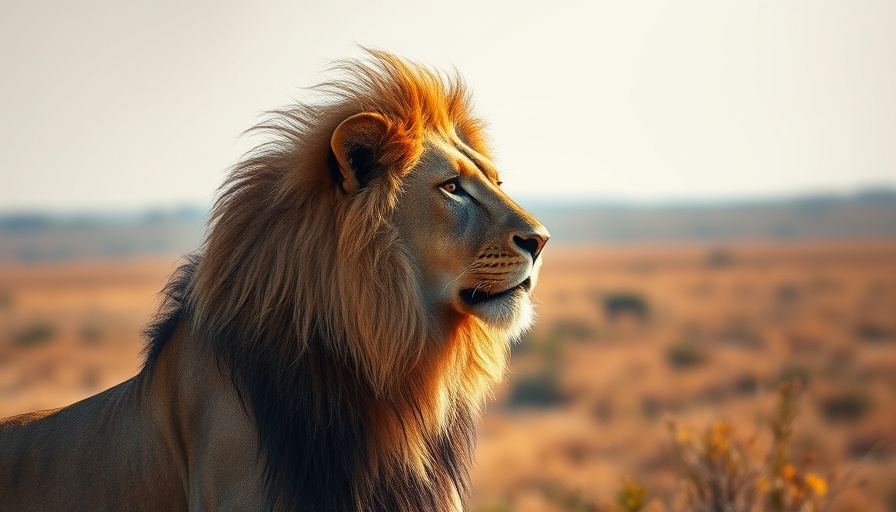
The Outcry Over a Collared Lion's Death
The recent killing of a collared lion in Zimbabwe, aptly named Blondie, has ignited widespread outrage among wildlife conservationists. This incident draws stark parallels to the infamous case of Cecil the Lion, whose tragic demise at the hands of a trophy hunter in 2015 became a global symbol of the battle against big-game hunting. Just as Cecil's death prompted protests and calls for more stringent hunting regulations, the fate of Blondie has galvanized animal rights activists and reignited the debate over hunting practices in Africa.
A Lion's Legacy: More Than Just a Research Subject
Blondie was not an ordinary lion; he was part of an ecological study conducted by Oxford University, aimed at gaining insights into lion behavior and conservation needs. He wore a research collar sponsored by Africa Geographic, a respected safari company that promotes wildlife education and conservation. His death raises ethical questions about the extent of trophy hunting, especially when it involves animals under scientific study. How can societies sanction the killing of a creature that contributes to valuable research data?
Legal Yet Controversial: The Case for Trophy Hunting
While the hunt that led to Blondie’s killing was deemed legal by Zimbabwean officials, the circumstances surrounding it—specifically, luring him out of a protected area with bait—have steered critics toward questioning the morality of such practices. Zimbabwe permits the hunting of up to 100 lions a year, attracting international trophy hunters who pay large sums for the chance to capture a lion’s head or skin. This raises concerns about sustainability, animal welfare, and the actual benefits these hunts provide to local communities and conservation efforts.
The Response from the Conservation Community
Simon Espley, CEO of Africa Geographic, expressed that Blondie's death made “a mockery of the ethics” surrounding wildlife research and conservation. He emphasizes that trophy hunting undermines efforts to study and protect endangered species. The incidents of Cecil and Blondie share a narrative of conflict between tourism, conservation, and the right to hunt, leaving many to wonder if the potential gains justify the cost of losing iconic species.
Black and White: Advocates vs. Opponents of Trophy Hunting
In the aftermath of Blondie's death, advocates for trophy hunting argue that well-regulated hunts can fund conservation projects and create economic opportunities for local communities. They contend that legal hunting can divert poaching pressure by offering alternatives for communities reliant on wildlife resources. On the other hand, opponents argue that the price paid by hunters does not equate to conservation outcomes, especially given the emotional value and ecological role that each lion represents.
Emotional and Societal Implications
The emotional outrage following Blondie's death reflects broader societal issues surrounding wildlife protection and ethical hunting. For many, lions are more than trophies; they symbolize the wild essence of nature and the ongoing struggle against anthropogenic pressures. The sentiment shared across social media platforms indicates a collective consciousness increasingly intolerant of practices perceived as cruel or irresponsible. This presents a challenge for policymakers: how to balance claims of conservation with the realities of a changing planet.
What Lies Ahead: Future Implications for Conservation?
The death of Blondie may be a turning point for conservation discourse. It sheds light on pressing issues—will public sentiment lead to changes in hunting regulations? How will conservation strategies evolve in response to growing opposition against trophy hunting? Moving forward, addressing the clash between economic incentives for local communities and the moral implications of hunting practices will be critical for wildlife conservation initiatives.
The conversation surrounding trophy hunting and its place in conservation will likely play out on social media and within global forums, with the public increasingly mobilized by moral and ethical considerations. Whether this incident serves as a catalyst for reform or becomes another chapter in the ongoing debate remains to be seen.
As we engage with this complex topic, it's essential to stay informed and involved in conservation efforts that prioritize ethical treatment and sustainable practices. We can be advocates for responsible wildlife management—one tweet, one post, one conversation at a time.
 Add Row
Add Row  Add
Add 




Write A Comment